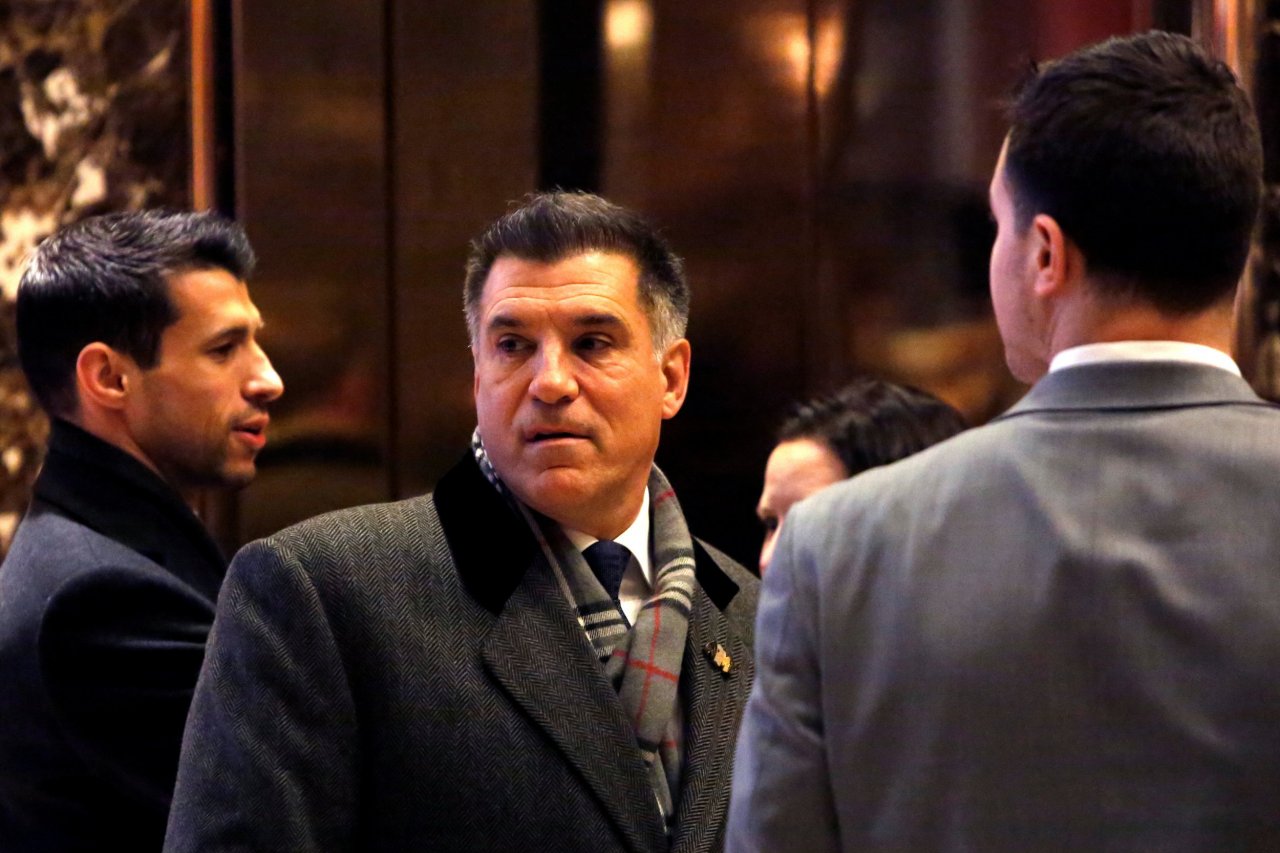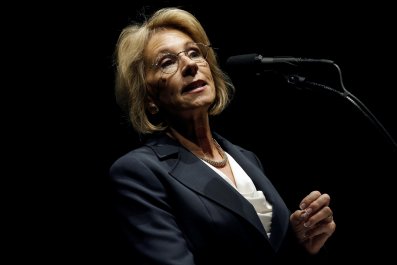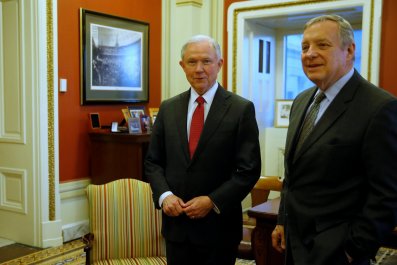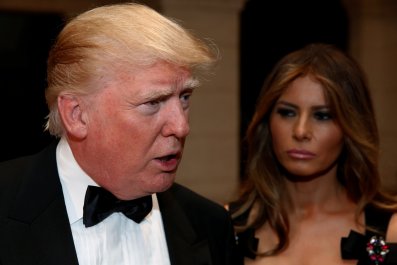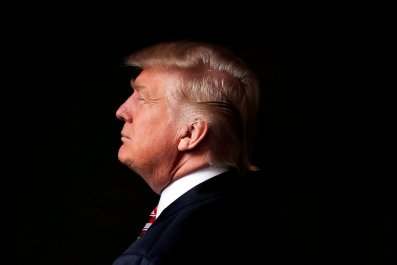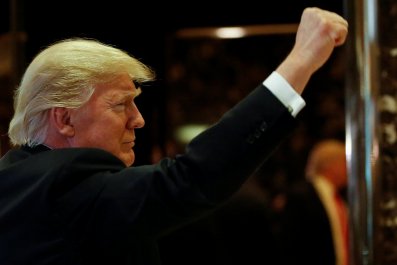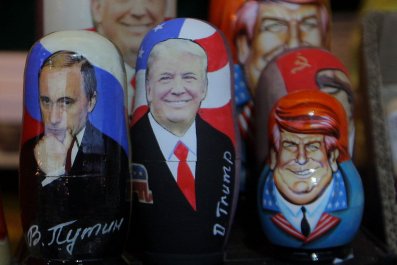Virtu Financial, the giant Wall Street high-frequency trading firm run by President-elect Donald Trump's nominee for secretary of the Army, Vincent Viola, has a record of violating the rules of the U.S. Securities Exchange Act, the Nasdaq Stock Market, the New York Stock Exchange and other exchanges that extends back nearly as long as the firm has been in business, according to U.S. market regulatory filings reviewed by Newsweek.
The latest filing, dated December 20—just one day after Trump nominated Viola to take charge of the Army's weapons systems, personnel, finances and other key functions—shows that Virtu, which Viola founded in 2008, quietly settled disciplinary proceedings involving more than 50,000 instances of trading violations from April 2013 to December 2015. The filing, posted on the NYSE's website, also cited earlier trading infractions—occurring between December 2010 and July 2012—that had previously not been made public and for which Virtu had received a cautionary letter from the exchange. The latest filing shows that the NYSE's warning apparently went unheeded, with many of the same types of trading violations and failures to supervise staff and business practices taking place for years at the firm.
Taken together, these violations call into question whether 60-year-old Viola, who now oversees a team of around 150 staffers, would be able to effectively command an Army consisting of more than 1 million soldiers. Viola, who did not respond to requests for comment, is executive chairman of Virtu and owns nearly 58 percent of the company, which is valued at more than $2 billion. Forbes estimates his net worth to be around $1.8 billion. In a statement sent to Newsweek by the Trump transition team, Virtu acknowledged its recent settlement with the NYSE, but declined to answer any questions about its infractions, saying it "does not comment on specific regulatory matters or settlements."
The NYSE and Nasdaq also declined to comment, but Andrew Perkins, chief disciplinary officer at the Financial Industry Regulatory Authority (FINRA), the Washington-based markets watchdog, censured Virtu on December 20 and approved the latest fine to be paid by the firm to the NYSE—$70,000—for what was described as 11 quarters of trading violations. Perkins also ordered the firm to address "deficiencies" in its business practices in order to bring it into "compliance with the rules and regulations" of the nation's stock markets.
Since Viola founded Virtu, the firm has paid hundreds of thousands of dollars in fines for trading violations at U.S. exchanges, mostly to the NYSE and Nasdaq, with the firm neither admitting to nor denying any wrongdoing. One of the largest fines, for five million euros ($5.2 million), was imposed on Virtu Financial Europe late last year by French regulators, which accused it of market manipulations in 2009 and also slapped the Euronext Paris exchange with the same fine for exempting Virtu from trading penalties, suggesting complicity and a lack of impartiality in supervising its markets. At the time of the infractions, Euronext was part of the NYSE. It has since been spun off.
At the core of Virtu's trading violations between April 2013 and December 2015 were failures to "reasonably supervise the activities" of Virtu's staff and business operations, according to the order signed by Perkins at FINRA. The order also found that Virtu "failed to establish and maintain adequate supervisory procedures to ensure compliance" with NYSE rules. Virtu is a Wall Street market maker, which means it uses algorithms to buy stocks from sellers and sell stocks to buyers around the world at lightning-fast speeds (as in, millions of trades a minute), taking tiny slices of profit off each transaction. How big those slices are allowed to be is carefully guarded by the exchanges where the transactions take place. Virtu plays this market-making role with more than 12,000 securities and other financial instruments on more than 230 exchanges, markets and liquidity pools in 35 countries. Perkins's order found that Virtu had failed to meet the NYSE's requirements for its price quotes on the exchange's stocks in 57,045 instances. Virtu also failed to stamp its transactions with "the proper market maker ID" in 2,854 instances, the order said.
As part of the settlement and sanctions agreed to by Virtu last month, the high-frequency trading firm will need to show FINRA in the coming days that it "has implemented procedures that are reasonably designed to achieve compliance" with NYSE rules and the U.S. Securities Exchange Act, the order said.
While officials at the NYSE would not discuss what initially spurred the years-long review of Virtu's trading and supervision practices, regulatory filings show that the exchange has issued warnings to Virtu for failing to meet its quoting obligations on securities going as far back as December 2010.
In fact, just months before issuing its cautionary letter to Virtu in December 2012, the NYSE received an alert from Virtu requesting that the exchange "bust or adjust" orders it erroneously executed at "unfavorable prices" at the exchange, according to regulatory filings. The request from Virtu referred to 1.45 million orders it accidentally executed on July 25, 2012 for what appears to have been Apple stock options.
The error resulted in losses of $3.7 million for the firm. (According to Virtu's filings ahead of its public offering in 2015, this seems to have been the only day it had ever lost money.) The request by Virtu for the adjustment or reversal of the trades, thousands of which were executed at both NYSE and Nasdaq, resulted in an investigation by FINRA into Virtu's risk-management controls and supervisory procedures, according to filings from the exchanges. The case, settled in October 2015, included fines totaling $60,000 paid by Virtu to both exchanges.
In an interesting twist, the law firm settling the case on behalf of Virtu was Bracewell & Giuliani. While former New York City Mayor Rudy Giuliani left the firm earlier this year, the Trump transition team confirmed to Newsweek that Giuliani provided a key recommendation to Trump for Viola's appointment as Army secretary. Others who recommended Viola included former Republican presidential candidate Ben Carson and retired U.S. Army Lieutenant General Michael Flynn, former director of the U.S. Defense Intelligence Agency and Trump's pick for national security adviser.



